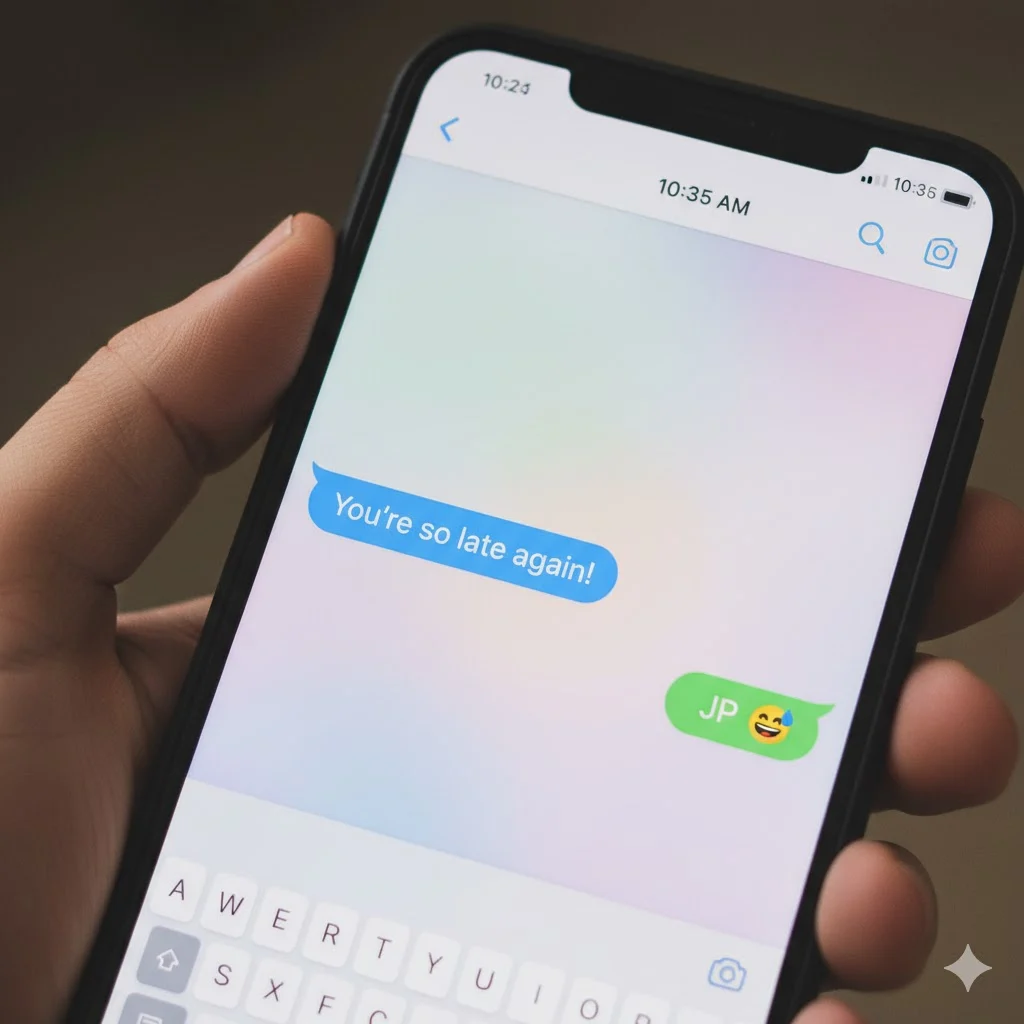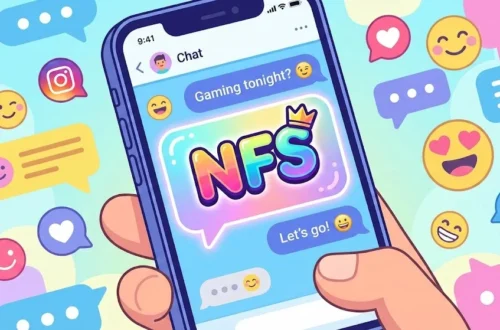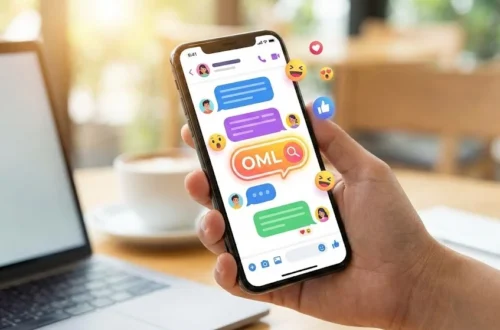Hey there! 👋 If you’ve ever scrolled through your messages and stumbled across someone saying “JP”, you might’ve wondered what on earth it means. Don’t worry—you’re not alone! Whether you’re a teen texting friends, a parent trying to decode slang, or someone navigating social media or gaming chats, this little abbreviation can leave you scratching your head.
In the fast-paced world of online communication, short forms like “JP” make chatting quicker—but they can also be confusing if you’re not up to date. Understanding these terms helps you connect better, avoid misunderstandings, and even sound more natural when texting.
So, if you’ve ever paused mid-chat thinking, “Did they just insult me or joke around?”, this post is for you. Let’s break down exactly what JP means in text, how it’s used, and why context is everything.
Definition & Meaning (250–500 words)
So, what does JP mean?
In texting, “JP” stands for “Just Playing.” 🎮 It’s a casual way of telling someone that what was just said wasn’t meant seriously—you were simply joking, teasing, or being playful.
For example:
👩🦰 Emily: “You’re the slowest texter ever!”
👦 Jake: “Hey! JP 😄”
Here, “JP” softens Emily’s message—it shows she’s not actually upset but just having fun.
Sometimes, people use it after a sarcastic or teasing comment, to make sure the other person doesn’t take it the wrong way. It’s the digital version of saying “just kidding” or “I’m only joking.”
However, “JP” can also stand for other things depending on the context:
- Japan 🇯🇵 — when talking about countries or travel.
- Justice of the Peace — in legal or formal discussions.
- Jump Point — in gaming or sci-fi communities.
So yes, context matters a lot!
If you’re texting and someone drops a “JP,” think about the tone of the conversation. Most of the time, it’s harmless and playful.
Background & History (250–500 words)
The abbreviation “JP” likely started as part of the early internet and gaming culture in the late 1990s and early 2000s. Back then, people loved using shortcuts to type faster on instant messengers like MSN, AOL, and Yahoo Chat.
Instead of writing “Just Playing” or “Just Joking,” users began shortening phrases into two-letter codes like “JK” for “Just Kidding” and “JP” for “Just Playing.”
As time passed, “JP” found its way into texting and social media apps like Facebook, WhatsApp, Twitter, and Snapchat. It became a universal way to keep things light and fun during conversations.
Interestingly, “JP” also took on new meanings in different online spaces. For instance:
- In gaming forums, “JP” might mean “Jump Point” or even “Job Points” (in RPGs).
- In travel groups, “JP” commonly means Japan.
- In legal circles, it’s short for Justice of the Peace.
Today, “JP” is a multi-meaning acronym, but in casual texting, the most common meaning is still “Just Playing.”
Usage in Various Contexts (250–500 words)
Let’s see how “JP” appears in real-life chats 👇
1. In Texting
👧 Mia: “You’re obsessed with selfies.”
👦 Liam: “Haha JP 😅”
➡️ Here, it’s a playful tease, not meant to offend.
2. On Social Media
People might comment:
“I said I’d stop eating fries… JP 😜”
It’s humor and self-awareness combined.
3. In Gaming
🎮 Player1: “You can’t even land a shot!”
🎮 Player2: “Bruh… JP 😂”
➡️ Used to cool down competitive tension.
4. In Work or Group Chats
Rarely used, but if it appears, it means someone’s lightening the mood.
💼 Alex: “Guess I’m the boss now! JP 😆”
So, while “JP” can fit almost anywhere, it’s best used in informal chats where humor is expected.
Common Misconceptions & Clarifications (250–500 words)
A few common misunderstandings surround “JP”:
- “JP” means “Just Pranking” or “Just Procrastinating.”
While these could make sense, they’re not widely accepted meanings. “Just Playing” is by far the most common. - “JP” is always positive.
Not necessarily. Tone and context matter. Sometimes, a “JP” might come after a sarcastic or passive-aggressive comment.
Example:
👩 Ella: “You never listen to me! JP…”
This might sound half-serious—so it’s better to read between the lines.
- It’s professional.
Nope. “JP” is not suited for formal communication. Keep it for friendly or casual chats only.
Similar Terms & Alternatives (250–500 words)
Here are some alternatives people use instead of “JP”:
| Term | Meaning | Tone | Common Use |
|---|---|---|---|
| JK | Just Kidding | Playful | Texting, memes |
| LOL | Laugh Out Loud | Funny / casual | Social media |
| BRB | Be Right Back | Neutral | Chats |
| SMH | Shaking My Head | Disapproval | Online reactions |
| JIC | Just In Case | Informative | General texting |
Among them, “JK” is the closest alternative to “JP.” Both soften statements or jokes.
How to Respond to “JP” (250–500 words)
How you respond depends on the tone of the conversation:
- Casual:
👦 Chris: “You’re late again! JP 😆”
👧 Taylor: “Haha, I know! You got me 😂” - Funny:
👦 Sam: “You owe me lunch. JP!”
👧 Lily: “Nah, too late—you said it! 😜” - Professional (avoid using JP):
👨💻 Colleague: “We might cancel the meeting… JP 😅”
👩💼 You: “Haha, good one. For a second, I believed it!” - Privacy-conscious:
Simply smile or use emojis like 😅 or 😆 without extending the chat.
Regional or Cultural Differences (250–500 words)
“JP” is widely recognized in English-speaking countries, but its interpretation can shift slightly:
- US/UK: Usually means “Just Playing.”
- Japan: Ironically, “JP” can also stand for the country code 🇯🇵.
- Latin America: Not as common—people use “JK” or “XD” instead.
So while it’s globally understood online, it’s not universal in every region.
Comparison with Similar Terms (250–500 words)
| Term | Meaning | Used For | Formality | Example |
|---|---|---|---|---|
| JP | Just Playing | Joking casually | Informal | “You’re lazy! JP 😂” |
| JK | Just Kidding | Softening sarcasm | Informal | “I hate Mondays. JK.” |
| LOL | Laugh Out Loud | Showing amusement | Informal | “That meme! LOL.” |
| ICYMI | In Case You Missed It | Sharing info | Neutral | “ICYMI, new update’s out.” |
JP vs JK:
While both mean you’re not serious, “JP” feels more playful, while “JK” is more about joking or sarcasm.
Usage in Online Communities & Dating Apps (250–500 words)
On platforms like Tinder, Twitter (X), or Discord, people use “JP” to flirt or make lighthearted comments.
Example:
💬 “You’re totally my type… JP 😉”
➡️ Often a flirty message masked as a joke.
In gaming chats, it’s used to defuse tension after a tough match:
“You really missed that shot! JP 😂”
So it’s great for humor—but not for serious conversations.
Hidden or Offensive Meanings (250–500 words)
Generally, “JP” is not offensive. But context matters. If someone uses it after a harsh comment, it can sound dismissive—like they’re covering up rudeness.
Example:
“You’re useless… JP 😏”
This can still hurt feelings, even with “JP” attached.
So, while it’s not a bad term, always watch tone and timing before using it.
Suitability for Professional Communication (250–500 words)
“JP” is not suitable for professional settings. Using slang in work emails or formal chats can seem immature or unclear.
Instead, try:
- “Just kidding.”
- “Only joking.”
- “No worries, I was teasing.”
These sound more professional and polite.
FAQs (5–7 Questions)
1. What does JP mean in text?
It usually means “Just Playing,” a lighthearted way to say you’re joking.
2. Is JP the same as JK?
Pretty much—both express humor, but “JP” is more about playful teasing.
3. Can JP mean Japan?
Yes, when discussing geography, travel, or national codes.
4. Is JP rude?
No, unless it’s used after a mean comment.
5. Should I use JP in work emails?
No. Save it for casual or personal chats.
Conclusion (150 words)
So, next time someone says “JP,” you’ll know they’re “Just Playing.” Whether it’s a friendly tease, a flirty comment, or a way to cool off after gaming, it’s all about keeping things light and fun.
But remember—context is everything. Used right, “JP” can make conversations playful and engaging. Used wrong, it might confuse or offend someone.
So keep it casual, stay kind, and when in doubt—add an emoji 😄.






